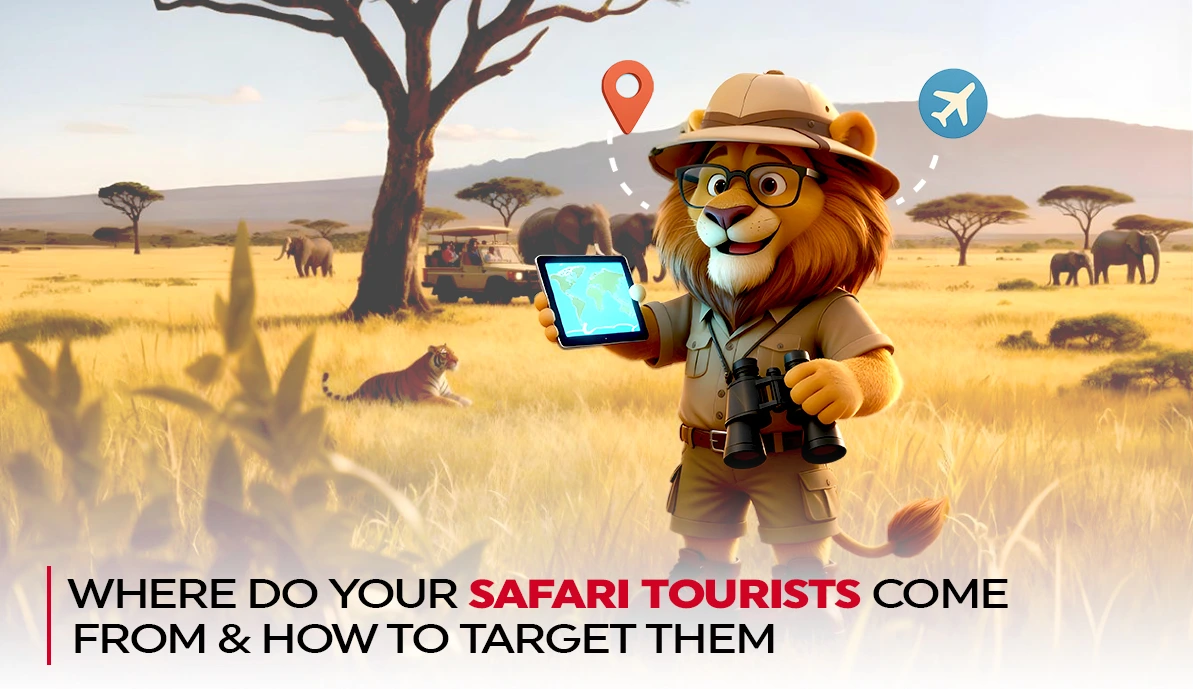The call of the wild has fascinated travelers for decades. Safaris are no longer just about spotting animals; they are life-changing experiences that connect people with nature. Tour operators often wonder where their visitors originate and how to reach more of them effectively. Identifying top markets and targeting strategies ensures stronger bookings and consistent growth.
Understanding Safari Tourist Origins
Safari tourism attracts travelers from diverse regions, each with unique motivations and expectations. Recognizing where tourists come from helps operators design experiences that resonate with their cultural values and travel styles. The following countries and regions contribute significantly to global safari tourism:
United States
Travelers from the United States represent one of the largest safari markets. They often favor luxury accommodations, all-inclusive packages, and guided experiences that guarantee safety and comfort. Americans also tend to book well in advance and value detailed itineraries. Creating partnerships with established US travel agencies and showcasing safari highlights on Instagram and Facebook can increase conversions.
United Kingdom
Tourists from the UK share a deep cultural and historical connection with Africa, making safaris a popular choice. Many prefer classic tented camps or boutique lodges that balance authenticity with comfort. UK travelers respond well to blogs, video storytelling, and reviews from past visitors. They are also highly influenced by conservation-driven initiatives and stories about local communities.
Germany
German travelers are methodical and research-oriented, often comparing options before committing. They appreciate transparency in pricing, sustainable practices, and clear trip structures. Germans also prefer experiences that mix adventure with eco-conscious living. Highlighting conservation projects, carbon-neutral lodges, and detailed day-by-day itineraries appeals strongly to this group.
France
French safari tourists often seek exclusivity and cultural depth along with wildlife encounters. They value immersive experiences, such as dining with local communities or guided photography tours. Luxury offerings, when paired with unique cultural elements, tend to win their attention. Marketing content in French, paired with visuals that highlight romance and elegance, works especially well.
China
Chinese travelers are a fast-growing segment of safari tourism. They usually travel in groups and prefer structured itineraries with plenty of photo opportunities. Digital platforms such as WeChat, Weibo, and Xiaohongshu play a key role in their decision-making process. Offering Mandarin-speaking guides and tailoring campaigns for Chinese social media enhances engagement.
Australia
Australians are adventurous travelers who do not shy away from long-haul trips. They often combine safaris with other African destinations, such as Cape Town or Victoria Falls. Australians appreciate flexibility in itineraries, multi-destination packages, and experiences that balance adventure with relaxation. Promoting safaris as part of a larger travel circuit resonates strongly with this market.
Emerging Markets
Countries like India, Brazil, and Canada are steadily growing as safari source markets. Indian tourists often travel in family groups and seek value-driven packages. Brazilians are drawn to exotic experiences and vibrant storytelling, while Canadians appreciate quiet escapes and eco-friendly adventures. Building awareness in these regions through targeted online campaigns helps establish an early foothold.
Targeting Safari Tourists Effectively
Tourist origins are only part of the equation. Knowing how to engage them through smart targeting is equally important.
Tailored Digital Marketing
Each region uses different online platforms. Americans engage heavily on Instagram and Facebook, while Chinese audiences respond to WeChat. Germans and the French prefer detailed websites with clear package breakdowns. A digital marketing agency like Markethix helps tour operators customize strategies for these regions.
Search Engine Optimization
Travelers search for safaris differently based on their location. Using localized SEO ensures your business appears in relevant searches. Phrases such as Local business marketing Florida or SEO services Florida target specific demographics in the travel industry. Optimizing your website with targeted keywords drives more qualified leads.
Social Media Storytelling
Safari experiences are visually powerful, making social media a prime tool for engagement. Videos of game drives, sunsets, and authentic cultural exchanges attract potential travelers. Platforms like TikTok in the US, Instagram in the UK, and Xiaohongshu in China should be prioritized.
Paid Campaigns and PPC
Pay-per-click campaigns help reach new travelers quickly. Running ads in target countries can capture audiences actively researching safaris. For example, Google Ads in the US or Facebook Ads in Australia can deliver strong results. Partnering with a PPC agency in Orlando or elsewhere helps optimize budget and reach.
Partnerships with Agencies
Travelers from the US, UK, and Germany often book through trusted agencies. Collaborating with established travel companies ensures more consistent bookings. Offering commission-based packages makes these partnerships more attractive.
Cultural Adaptation
Messaging must match cultural values. Germans respond to facts and detailed itineraries, while French audiences connect better with emotion-driven campaigns. Chinese travelers appreciate group-oriented offers and visual content. Adjusting the tone of campaigns builds stronger connections.
Focus on Sustainability
Eco-tourism is becoming a key decision factor. Highlighting eco-friendly lodges, conservation initiatives, and community programs appeals to European and Australian travelers. Transparency in sustainability efforts builds trust and loyalty.
Strategies for Growing Bookings
Expanding your reach requires a mix of innovative and traditional strategies.
- Content Creation: Blogs, videos, and virtual tours increase interest among long-distance travelers.
- Influencer Collaborations: Adventure influencers from the US or Europe can showcase real safari experiences.
- Language Localization: Translating marketing material into German, French, and Mandarin creates accessibility.
- Customer Retargeting: Email campaigns and remarketing ads keep potential clients engaged until they book.
The Bottom Line
Understanding where safari tourists come from is only the first step. Targeting them with precision ensures consistent growth and higher satisfaction. The US, UK, Germany, France, China, and Australia remain dominant markets, while emerging regions show promise. Tour operators must blend cultural adaptation, digital campaigns, and agency partnerships to succeed. Working with a professional digital marketing agency like Markethix helps safari businesses maximize their reach. With smart strategies, every tour can attract the right audience and deliver unforgettable adventures.



0 Comments